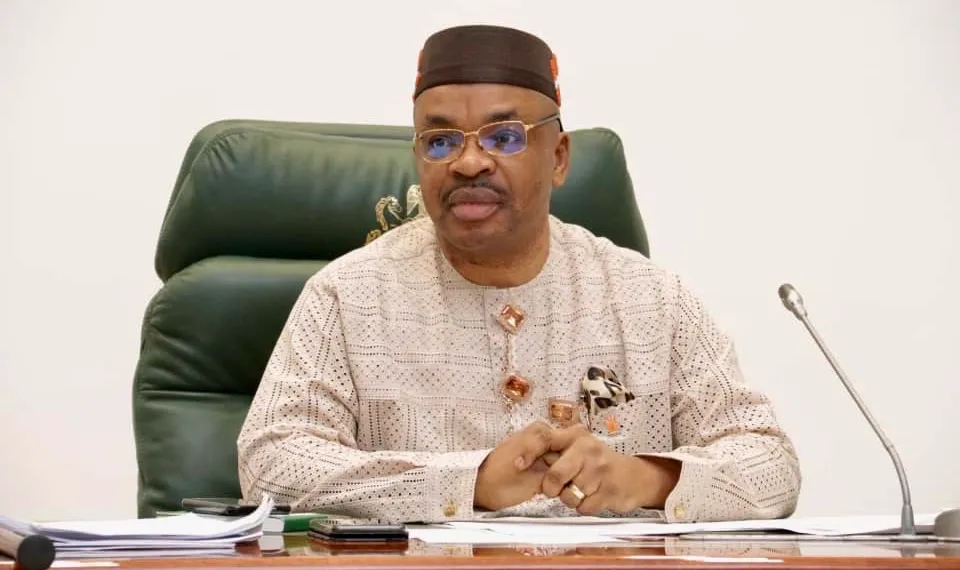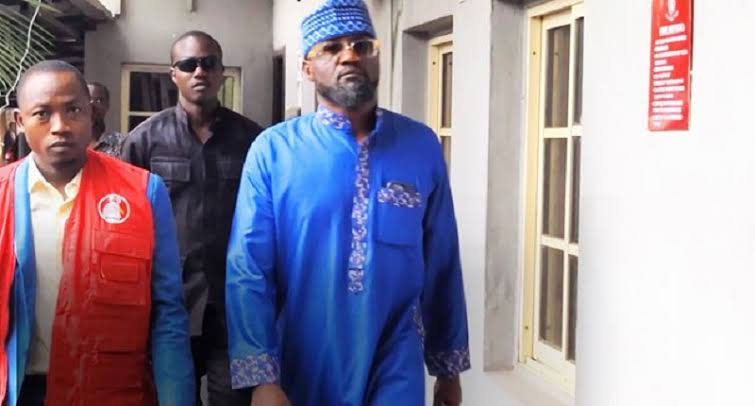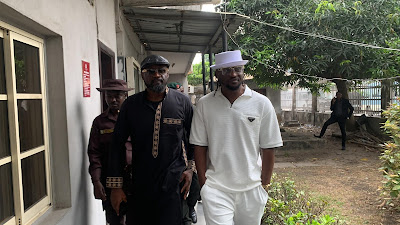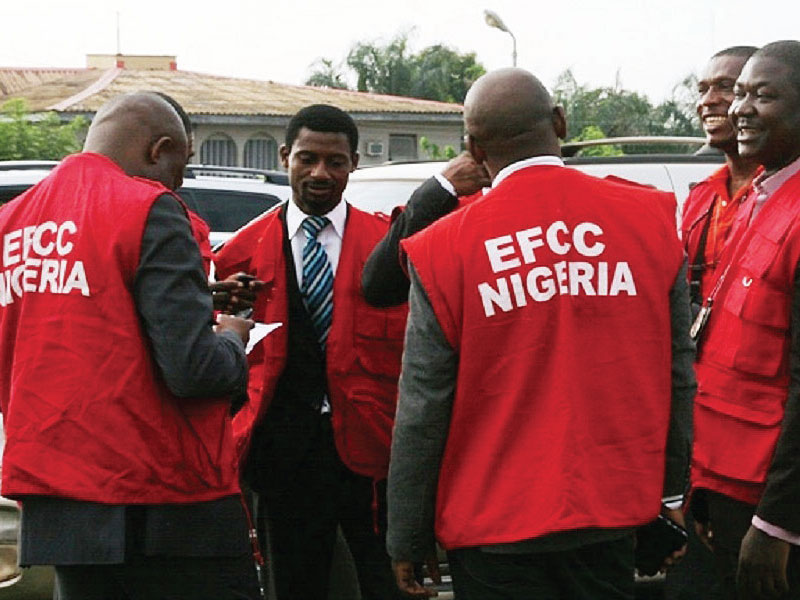Organised crime in Nigeria is like a tap root with its grip firm and difficult to detach, all thanks to systemic weaknesses and institutional failures. This crime epidemic is not just a statistic, but a harsh reality that affects Nigerians daily. Most citizens agree on three fundamental issues regarding crime in Nigeria: the high success rate of organised crime, the fact that socioeconomic conditions create a breeding ground, and the weakness of governmental structures and institutions.
Criminal enterprises continue to grow with little resistance from law enforcement, and widespread poverty, hunger, and unemployment push many into criminal activities as a means of survival. According to the National Bureau of Statistics (NBS), Nigeria’s unemployment rate stood above 34% in 2023, with youth unemployment exceeding 42%, creating a vast pool of potential recruits for organized crime.
Corruption, inefficiency, and lack of accountability have allowed criminals to overpower the justice system. The inability of security agencies to curb the growing influence of organized crime has emboldened criminals, who operate with little fear of repercussions. This situation has created a vicious cycle where crime flourishes, law enforcement remains ineffective, and public confidence in governance continues to erode. The Global Organized Crime Index 2021 ranked Nigeria as the 6th most criminally entrenched country globally, highlighting the country’s struggle with illicit markets, criminal networks, and state-embedded actors. The absence of a strong judicial deterrent has led to an increasing number of young Nigerians being drawn into illegal activities.
A recent warning by the Economic and Financial Crimes Commission (EFCC) chairman highlighted how foreign criminal groups embed themselves within Nigerian cities. These syndicates recruit young Nigerians into sophisticated cybercrimes, particularly cryptocurrency fraud, with global financial implications. Adding to the concerns, the EFCC has alleged that foreign fraud syndicates are importing arms into Nigeria using cryptocurrency as a payment mode. This development raises serious national security concerns and underscores the critical need for stricter monitoring of digital financial transactions. International collaboration is not just beneficial, but necessary in our efforts to combat crime.
High-profile cases of fraud, drug trafficking, and financial crimes fuel Nigeria’s reputation as a centre for organized crime. Failing to combat these crimes has led to travel restrictions, financial monitoring, and diplomatic strain between Nigeria and other nations. The reputational damage is enormous, and the implication is visible when you see how innocent Nigerians are searched and treated like criminals at airports and other gateways in countries around the world.
Despite efforts by law enforcement agencies, organized crime thrives due to systemic weaknesses. Nigeria has become a global hotspot for internet fraud, ranging from phishing scams to Business Email Compromise (BEC) fraud. The rise of “Yahoo Yahoo” (online fraudsters) has normalized cybercrime among youths, many of whom view it as a lucrative alternative to legitimate employment. A Nigerian Communications Commission (NCC) report estimated that cybercrime costs the Nigerian economy over $500 million annually.
The infamous “419 scam” (named after Nigeria’s penal code section on fraud) remains a persistent issue, targeting individuals and businesses worldwide. Nigeria has become the butt of jokes around the world when comedians and the likes evoke the image of “a scam Nigerian rich prince looking for someone in the West to help him luander his family wealth”.
Nigeria faces severe security challenges from Boko Haram, ISWAP, and other militant groups. However, the Nigerian government is not sitting idly by. Due to regulatory loopholes, the banking system has become an avenue for terrorist financing. In response, the Nigerian government implemented the Terrorism (Prevention and Prohibition) Act of 2022 and the Money Laundering (Prevention and Prohibition) Act of 2022 to curb terrorist financing. However, enforcement remains weak, and more needs to be done to strengthen these measures.
Kidnapping for ransom has become one of the most lucrative criminal activities in Nigeria. According to the National Bureau of Statistics (NBS}, Nigerians paid approximately N2.23 trillion as ransom to kidnapers between May 223 and Aril 224. Victims range from schoolchildren to high-profile politicians and business executives. Many kidnappers operate with impunity due to compromised security forces.
Fraudulent investment schemes prey on Nigerians’ economic desperation, often collapsing and leaving thousands financially devastated. High-profile Ponzi schemes such as MMM Nigeria defrauded millions of Nigerians, and most recently, investment scams such as MBA Forex and Chinmark have left investors with billions of naira in losses. The government’s failure to properly regulate investment platforms and prosecute perpetrators has contributed to the continued rise of Ponzi schemes.
Nigeria is also a transit point for illegal arms trafficking, fueling conflicts and criminal enterprises. The porous borders allow weapons to flow freely into the country, exacerbating insecurity. Reports by the Small Arms Survey indicate that over 70% of the estimated 500 million illegal small arms circulating in West Africa are in Nigeria, aiding insurgents, bandits, and criminal syndicates. The unchecked smuggling of firearms contributes significantly to rising violence and organized crime activities, including armed robbery and terrorism.
Nigerian drug syndicates operate both locally and internationally, with high-profile cases of cocaine and heroin trafficking. In 2022, the National Drug Law Enforcement Agency (NDLEA) seized over 3.6 million kilograms of illicit drugs, including heroin, cocaine, and methamphetamine, across various states. Despite these efforts, corruption within law enforcement agencies often compromises investigations, allowing drug barons to operate with impunity. The international reach of Nigerian drug cartels has been evident in cases such as the arrest of Nigerian nationals involved in heroin trafficking in Southeast Asia, where drug-related offences carry the death penalty.
The theft and illegal crude oil refining have cost Nigeria billions in revenue. The Nigerian National Petroleum Company (NNPC) estimates that the country loses about 400,000 barrels of crude oil daily to theft, amounting to over $3 billion annually. Militants, local cartels, and corrupt government officials are deeply involved in this illicit trade. The environmental consequences of illegal oil bunkering are severe, with widespread pollution in the Niger Delta region leading to health crises and economic devastation for local communities.
Additionally, illegal mining of valuable minerals like gold and lithium is widespread, often controlled by criminal groups that exploit weak regulations. Reports by the Nigeria Extractive Industries Transparency Initiative (NEITI) reveal that the country loses billions in revenue due to unregulated mining activities. In Zamfara and Osun states, illegal gold mining has been linked to armed banditry, with criminal gangs using proceeds to fund violent attacks. Foreign companies, often operating with local collaborators, smuggle precious minerals out of Nigeria, depriving the nation of much-needed economic gains.
Several factors contribute to the high success rate of organized crime in Nigeria. The lack of a reliable national identification and address system makes tracking criminals difficult, as many citizens operate without proper documentation. Nigeria has created a NIN data base but still it has not been appropriately used to combat crime. Rapid urbanization has led to an unregulated population boom, overwhelming security agencies. Unemployment remains a key driver of crime, pushing many young people towards fraudulent activities. The societal pressure to attain wealth at any cost has normalized corruption and criminal behaviour.
Many criminals evade justice due to bribery and judicial inefficiencies, further eroding trust in the legal system. Corruption at all levels of government enables organized crime to flourish, from law enforcement officials who accept bribes to policymakers who ignore illicit activities. Ineffective policies and weak political will prevent meaningful reforms, allowing criminal networks to strengthen.
Despite the challenges, Nigeria can still reverse the trend of organized crime with strategic interventions. The first necessary step is a comprehensive process of reform, involving de-criminalization of the relevant agencies. You cannot use officially licensed criminal cartels to fight casual criminals. Strengthening law enforcement and judicial systems is critical, but the role of the public is equally important. Citizens should be vigilant and report any suspicious activities to the authorities. Security agencies require better funding and training, and the public can support these efforts by providing information and cooperating with investigations.
Judicial reforms should ensure speedy trials and strict sentencing for criminals. The judiciary must uphold strict interpretations of the law, and courts should deliver appropriate punishments for criminal offences. Judges must resist external influences, bribery, and political interference. Enforcing harsher penalties for criminal activities is essential. Laws against cybercrime, kidnapping, and fraud should be strictly enforced, and high-profile criminals should be prosecuted as deterrents.
Enforcing stricter financial regulations will help disrupt criminal financing. Strengthening anti-money laundering measures and improving surveillance of cryptocurrency transactions are necessary steps. Implementing a national identification and address system will help track criminals and reduce identity fraud. Citizens should be required to register with verifiable addresses.
Addressing unemployment and poverty through job creation programmes and entrepreneurship initiatives will discourage youth involvement in crime. Combating corruption and improving governance will require more assertive and independent anti-corruption agencies. Government officials found complicit in organized crime should be held accountable.
Nigeria stands at a crossroads. The country can either continue on its current path, where crime syndicates dictate the rules or take bold and decisive action to reclaim national security and stability. The government must demonstrate an unwavering commitment to justice, ensuring crime is met with swift and appropriate punishment. Citizens must demand accountability from leaders and refuse to normalize corruption.
A functioning society cannot exist where crime thrives unchecked. It is time for Nigeria to embrace the rule of law, restore public trust, and build a nation where security and justice prevail over criminal enterprise. The fight against organized crime is not just a fight for governance—it is a fight for the nation’s soul. Without urgent intervention, Nigeria risks deeper instability and economic decline. The future of Nigeria depends on a collective effort to restore law, order, and justice.






